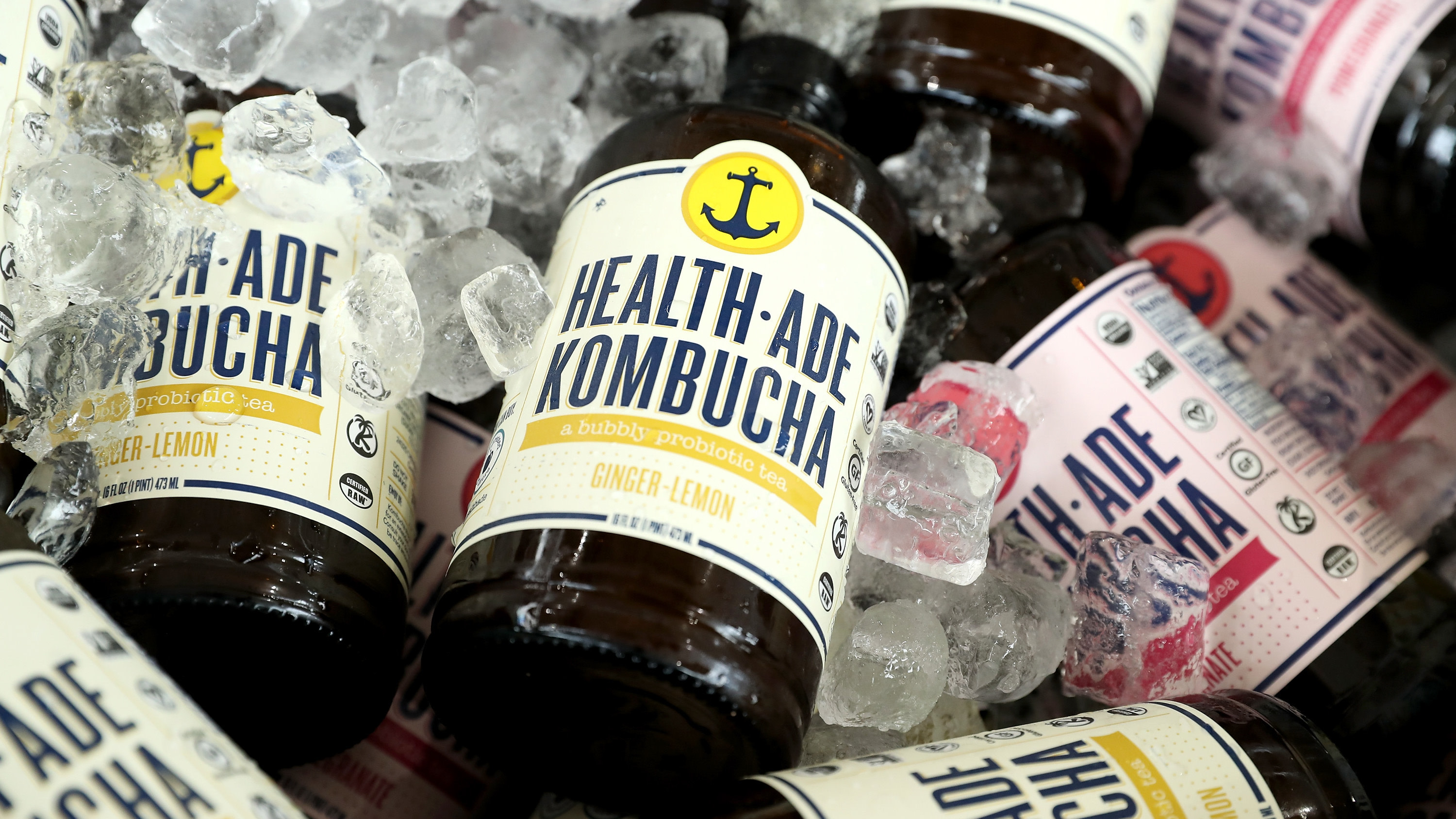Why You Should Use A Straw To Drink Kombucha
Probiotics in kombucha are purported to be good for your gut health, beneficial to energy levels, and a boon to your immune system. I'm no doctor, so all I can say for certain is that I think kombucha tastes good. But recently, some dentists have begun sounding the alarm that kombucha may be bad for your oral health, potentially even as bad as—dun dun dun—soda.
The culprit is kombucha's acidity. Its low pH is beneficial in keeping unwanted bacteria from thriving in the liquid, but it also has the effect of wearing down tooth enamel. Kombucha can range from about 2-3 on a pH scale, similar to citrus juices and vinegar. Many sodas are also in this pH range. Dentists warn that tooth enamel begins to dissolve in contact with a substance below 5.5.
"Kombucha tea is an acidic beverage," American Dental Association spokesperson Dr. Tricia Quartey told The Takeout via email. "Foods and beverages that are high in acids wear away the enamel that protects your teeth, a process known as tooth erosion. This changes the appearance of your teeth and opens the door for bacteria that can cause cavities or infection."
But if you enjoy kombucha as an occasional tart, refreshing beverage, it needn't destroy your mouth. Just keep a few habits in mind to reduce the contact kombucha has with your teeth.
"Be sure to use a straw, placed behind your front teeth, so that the acidic beverage has less of a chance of coming in contact with your teeth. After consuming any acidic beverage, it's good to drink fluoridated water, which will rinse your mouth and help keep acids under control," Quartey says.
And like any sugary, acidic drink, Quartey says kombucha is best consumed in moderation.
